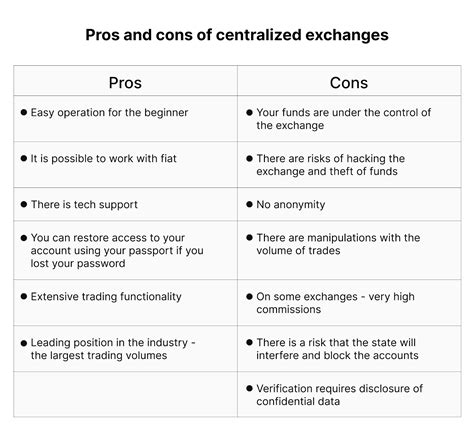Cryptocurrency: Decentralized Exchanges – The Future of Crypto Trading
The world of cryptocurrency has been on a rapid rise in recent years, with prices skyrocketing and adoption increasing exponentially. As the market continues to grow and mature, one of the key areas that will drive its future evolution is decentralized exchanges (DEXs). In this article, we’ll delve into the world of DEXs, exploring their concept, benefits, and potential impact on crypto trading.
What are Decentralized Exchanges (DEXs)?
A decentralized exchange is an online platform that allows users to buy, sell, and trade cryptocurrencies without relying on a central authority or intermediary. Unlike traditional exchanges, which operate on a centralized architecture, DEXs use advanced cryptographic techniques, such as smart contracts and blockchain protocols, to enable secure, transparent, and trustless trading.
How Do Decentralized Exchanges Work?
A typical DEX involves the following steps:
- Listing: An exchange lists multiple cryptocurrencies for trade, setting their respective prices.
- Order Routing: When a user wants to buy or sell a cryptocurrency, they submit an order through the platform’s user interface or API.
- Smart Contract Execution: The platform uses smart contracts to execute trades on behalf of the user, ensuring that all transactions are secure and compliant with regulatory requirements.
Benefits of Decentralized Exchanges
DEXs offer several advantages over traditional exchanges:
- Security: DEXs use advanced cryptographic techniques to ensure the security and integrity of trading data.
- Transparency: All trades are recorded on a public blockchain, making it easy for users to track their transactions.
- Decentralized Governance: Decentralized exchanges often have community-driven governance structures, allowing users to participate in decision-making processes.
- Lower Fees: DEXs typically have lower fees compared to traditional exchanges due to reduced intermediaries and increased efficiency.
Benefits of Cryptocurrencies
Cryptocurrencies offer several benefits that make them attractive for use in decentralized exchanges:
- Decentralized Nature: Cryptocurrencies are built on blockchain technology, which enables peer-to-peer transactions without the need for intermediaries.
- Security: Cryptocurrencies use advanced cryptographic techniques to secure transactions and prevent double-spending.
- Global Accessibility

: Cryptocurrencies can be easily transferred across borders, making them a popular choice for cross-border payments.
Challenges Facing Decentralized Exchanges
While DEXs offer many benefits, there are also several challenges that need to be addressed:
- Scalability: Currently, most DEXs face scalability issues, which can lead to slow trading speeds and high fees.
- Liquidity: Providing adequate liquidity on decentralized exchanges is crucial for users who want to trade cryptocurrencies efficiently.
- Regulatory Framework: Developing a robust regulatory framework for DEXs will be essential in ensuring their long-term adoption.
The Future of Cryptocurrency Trading
As the cryptocurrency market continues to evolve, we can expect to see significant advancements in decentralized exchange technology:
- Increased Adoption: As more people become familiar with DEXs, they will begin to use them as a primary means of trading cryptocurrencies.
- Improved Scalability: The development of new technologies and scaling solutions will enable DEXs to handle increased volumes and traffic.
- Enhanced Security: Ongoing research and development in blockchain security will lead to more robust and reliable decentralized exchanges.

